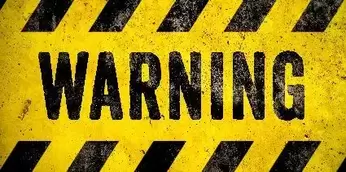 If you suffered side effects from a drug that failed to warn of the side effects call dangerous drug lawyer Timothy L. Miles If you suffered side effects from a drug that failed to warn of the side effects call dangerous drug lawyer Timothy L. Miles The majority of product liability claims are brought due to a product suffering from some type of manufacturing or design defect. In many cases, there has been a voluntary recall or a recall ordered by the U.S. Food & Drug Administration (FDA). The types of defective product cases typically assert a design or manufacturing defect and include, among others: defective medical devices; automobile defects; dangerous or defective pharmaceutical drugs, and toxic or environmental torts. For example, plaintiffs in the Elmiron lawsuit allege that its manufacturer Janssen Pharmaceuticals failed to warn consumers that the drug may cause a serious eye condition in those taking it, one that may result in blindness. Similarly, the Belviq lawsuit alleges the defendants made a defective drug and failed to warn physicians about its carcinogenic properties. In both the Kombiglyze XR lawsuit and the Onglyza lawsuit plaintiffs allege that the defendants failed to warn or mitigate the risk of cardiovascular injuries despite their knowledge. The Xeljanz lawsuits claim that Pfizer failed to give adequate warnings about the Xeljanz side effects, which caused preventable harm to patients who suffered blood clots in the lungs, heart attacks, strokes, breast and colon cancer, and other severe health problems. Both the Valsartan lawsuit and Tasigna lawsuit likewise allege the defendants made a defective drug and failed to warn physicians about serious Valsartan side effects and Tasigna side effects including their carcinogenic properties. Hundreds of plaintiffs have filed a Victoza cancer lawsuit and allege that Victoza, which is an incretin mimetic drug used to treat type 2 diabetes, may cause pancreatic cancer and that the manufacturer of Victoza, Novo Nordisk, failed to warn them of this risk and other Victoza side effects. Similarly, plaintiffs who took Byetta, another medicine used to treat type 2 diabetes, have filed a Byetta lawsuit alleging it too may cause pancreatic cancer and other Byetta side effects and that the manufacturers failed to warn doctors and patients of the risks. The Actemra lawsuit alleges the defendant failed to warn of serious Actemra side effects including heart, lung, or pancreatic side effects. Patients who took Meridia and subsequently developed Meridia Side Effects including a heart attack, stroke or even death allege in a Meridia lawsuit the defendants made a defective drug and failed to warn physicians about its carcinogenic properties. Finally, many plaintiffs who took Tepezza have filed a Tepezza lawsuit and allege the labels on the drug did not warn patients or doctors about serious Tepezza side effects, most notably, the potential risk for Tepezza hearing loss nor did it warn how these issues could be permanent to those taking the eye drug. What Is a Failure to Warn Products Liability Claim? If your medication failed to warn of unwanted side effects call dangerous drugs lawyer Timothy L. Miles If your medication failed to warn of unwanted side effects call dangerous drugs lawyer Timothy L. Miles A failure to warn claim asserts the defendant manufacturer did not supply adequate warnings or instructions on how to use the product safely, and the plaintiff was injured due to the failure to disclose the risk. Warning labels may not always be visible on a product. The manufacturer might put a warning on the box or in the instructions. A warning may not be sufficient to protect a manufacturer from liability if the user will not see it. For example, a manufacturer might have to put a warning directly on a product if people who would face the risk will not see it on the box or in the instructions. In addition, warnings should be expressed in language that the average individual understands, even if the product is complex and technical. Defenses to a Failure to Warn ClaimThe Danger Was EvidentOne defense to a failure to warn claim is that the danger was evident. While the law may vary in jurisdictions, one common rule is that an obvious risk does not require a warning. However, if an ordinary person using common sense would not be able to recognize the risk, the defense would not be available. For example, the manufacturer of toothpaste that caused headaches, could not rely on this defense since an ordinary person would not expect toothpaste to cause headaches. The Misuse Was Not ForeseeableA defendant manufacturer may also argue the plaintiff did not use the product in a reasonably foreseeable way. If someone uses a product in an unpredictable manner, then manufacturer will not be liable for a failure to warn. For example, if someone buys a bicycle, but instead of ridding it, turns it up on its handlebars and tries to juggle while balancing on the wheels, a manufacturer will not be liable because it did not warn about a risk that it obviously could not have reasonably foreseen. However, a plaintiff does not have to use a product exactly as it was intended by the manufacturer, and a manufacturer’s lack of warning for a predictable misuse may still be liable if the risk of was not obvious. This obviously will not be at issue in the baby formula recall cases since the product was being used exactly as intended. Manufacturer KnowledgeA manufacturer may try to avoid liability by arguing it had no knowledge about the risk it failed to provide warnings about. But, to state a claim for relief, actual knowledge is not required. Instead, the test is whether the manufacturer reasonably should have known about the risk. If the answer is yes, then the manufacturer may be held liable. In other words, a defendant may be liable for a risk it should have known about, even if the defendant possessed no actual knowledge of the risk. ConclusionIf you suffered serious side effects from a medication that failed to warn of the side effects, contact dangerous drug lawyer Timothy L. Miles today for a free case evaluation. You could be eligible to file a lawsuit alleging a failure to warn and could potentially be entitled to substantial compensation. timothy l. miles, esq.Timothy L. Miles is a nationally recognized shareholder and consumer rights attorney raised in Nashville, Tennessee. Mr. Miles was recently selected by Martindale-Hubbell® and ALM as a 2023 Top Ranked Lawyer, 2023 Top Rated Litigator. and a 2023 Elite Lawyer of the South. Mr. Miles also maintains the AV Preeminent Rating by Martindale-Hubbell®, their highest rating for both legal ability and ethics. Mr. Miles is a member of the prestigious Top 100 Civil Plaintiff Trial Lawyers: The National Trial Lawyers Association, a superb rated attorney by Avvo, a recipient of the Lifetime Achievement Award by Premier Lawyers of America (2019) and recognized as a Distinguished Lawyer, Recognizing Excellence in Securities Law, by Lawyers of Distinction (2019). Mr. Miles has published over sixty articles on various issues of the law, including class actions, whistleblower cases, products liability, and more. Comments are closed.
|
|
CONTACT
The Law Offices of Timothy L. Miles Tapestry at Brentwood Town Center 300 Centerview Dr., #247 Brentwood, TN 37027 Phone: (855) 846-6529 Email: [email protected] HOURS OF OPERATION Mon-Fri: 24/7 Sat-Sun: 24/7 |
CONNECt FacebooK
|
